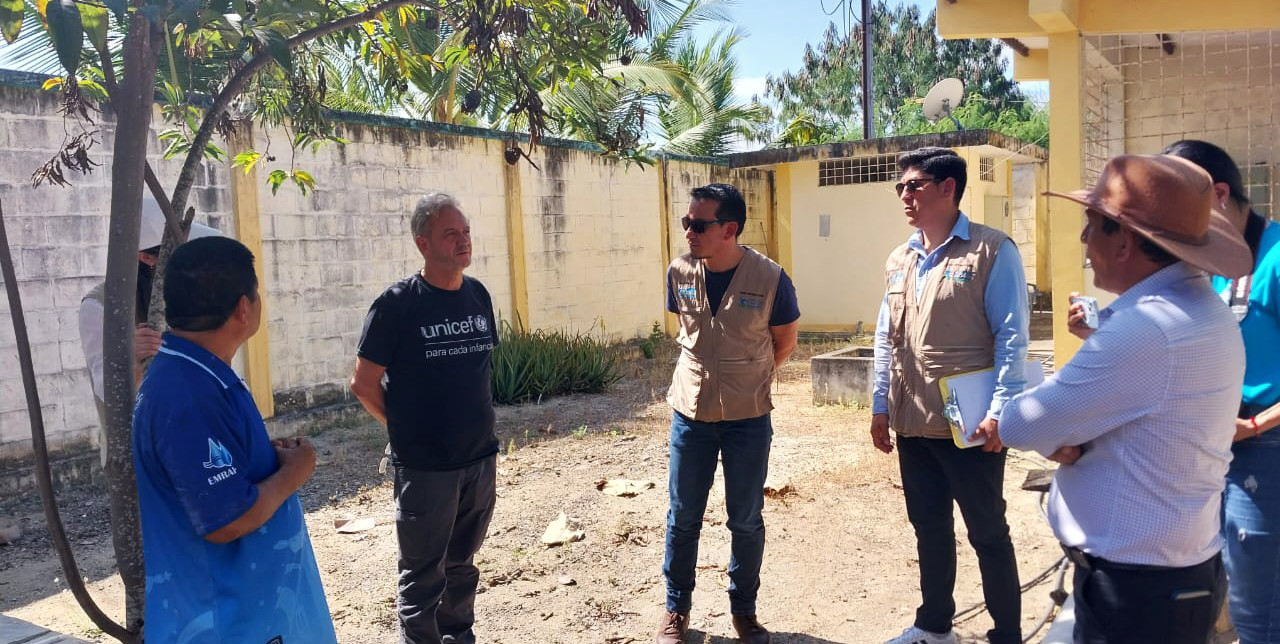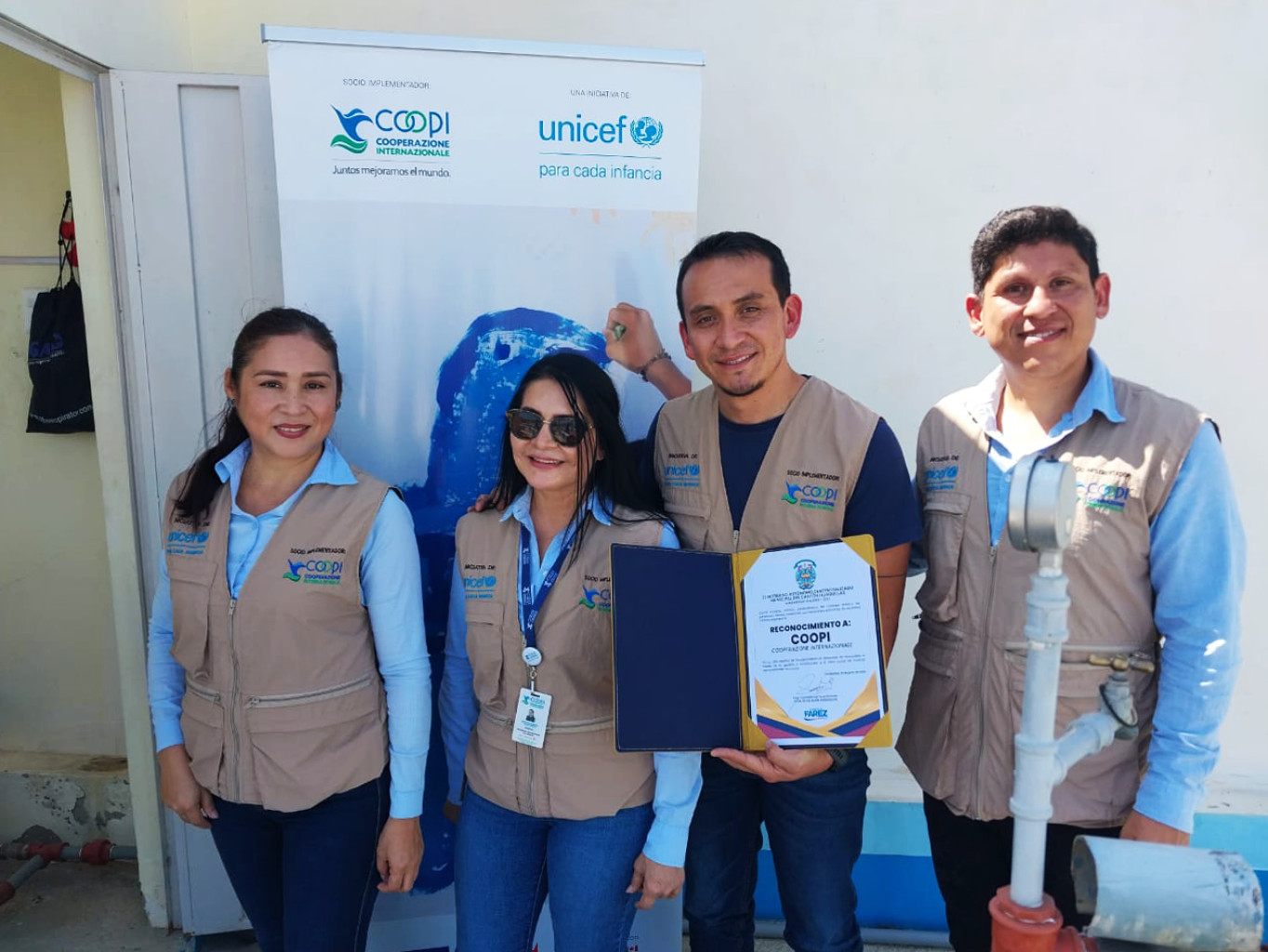09-09-2024 | di COOPI
Ecuador. Safe water for Huaquillas: COOPI and UNICEF rehabilitate 7 wells to benefit more than 72,000 people
On July 2, 2024, COOPI - Cooperazione Internazionale, as part of the UNICEF-funded project “Comprehensive Protection for Children and Adolescents and their Families in Human and Host Community Mobility and Access to Improved WASH Services in Ecuador” delivered 7 rehabilitated water wells to the decentralized Autonomous Government of the canton of Huaquillas. This initiative, critical to the region's water supply system, provides the population with access to safe, quality water, benefiting a total of 72,524 people.
The rehabilitation of the wells included essential maintenance and improvements to optimize the community's water supply. COOPI and UNICEF purchased filters, aerators, and other equipment needed to optimize well operation, as well as carried out cleaning and repair work. The process integrated elements of climate resilience, promotion of access to water resources, and community empowerment. This effort has directly improved the quality of life for the residents of Huaquillas, ensuring a more reliable and secure water supply.
Interventions covered both electrical and plumbing aspects, focusing on preventive and corrective maintenance, system optimization, use of quality materials, and environmental and safety considerations. This integrated approach demonstrates COOPI and UNICEF's commitment to improving the living conditions of children and adolescents by ensuring their access to essential water, sanitation and hygiene services.
COOPI has been working in Ecuador since 1967 implementing development projects to help fight poverty and respond to emergencies, while respecting the principles of human rights, gender, interculturalism and governance. Projects have addressed areas of focus such as child protection, water, sanitation and hygiene, improved equipment and infrastructure, livelihood generation and socio-economic inclusion, governance and human rights, and socio-cultural integration.




 Ecuador
Ecuador
